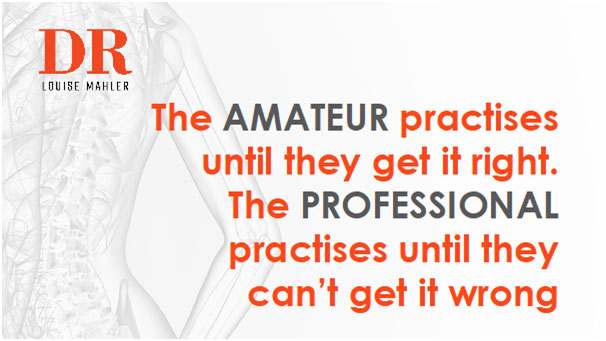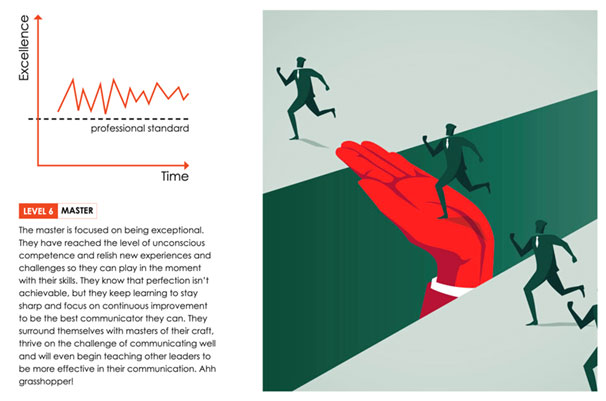Permacrisis, ‘an extended period of instability and insecurity’, is the Collins Dictionary word of the year and has dramatic effect on the way we communicate.
It is one of a handful of words relating to the challenges posed by climate change, the war in Europe, a cost-of-living crisis, political chaos and, in Melbourne and Australia, the ongoing effects of two years of lock down and as
Helen Newstead, language content consultant at Collins Dictionary, describes it, ‘Permacrisis’ encapsulates “lurching from one crisis to another without really drawing breath”.
Exactly!
This is the word we needed to have. It reflects the water in which we, the fish, are swimming and it may be drowning you.
I got an email yesterday from a client who told me they don’t know if they are Arthur or Martha and I hear on a daily basis about how many have lost our confidence after years of lockdown. I can tell the permacrisis is invading the personal state, withdrawing your breath and blocking your body and thinking.
Now as Joseph P Kennedy famously said “When the going gets tough, the tough get going!”, but this is not necessarily a time to be tough on yourself, but, on the other hand, it is also not a time to back away.
When confidence is lost we need to find techniques to keep breathing and get that body under control if not for the work you do then certainly for your own health.
Ann Burns and Sarah Rowley of CEW (Chief Executive Women) talk of the need for ‘awareness’ and that is a key step. What is going on for you at the moment? In your negotiations are you finding it difficult to maintain eye contact, finding yourself crossing your body with your arms, standing on one leg or perhaps the voice is rising in intonation at the end of sentence. This is called ‘uptalk’ and it undermines everything you just said by turning the statement into a question.
So first, become aware.
Then you need to break down the skills you need. Exactly how much eye contact is effective? What is a good position for the body when listening? How do you initiate sound strongly and get that breath back flowing in conversation with strong and downwards inflecting sentences.
You can not go past strong role models in the political world such as Obama who has unparalleled strength in this area as do Zelensky and Macron. Watch how they stand, where they place their hands and how they turn a phrase.
You will find that each has what is called a ‘rest position’, a place where they go to with their body when being watched. It most often involves weight onboth legs, the feet placed shoulder width apart and parallel, the body upright and the hands asymmetrically placed together with one hand on the wrist of the other.
In addition, they will maintain a looseness in their head through nodding and turning, with their eyes focused on others, but softened by blinking. And a key is in the looseness of the jaw and lips. Never will you see their jaw jutted or their lips jammed tightly.
The next thing you do is practise, practise, practise. You practise in every day places like the coffee shop. In fact, you practise until you really could not do it any other way. That way you are covered when the permacrisis becomes overwhelming.

In my WhitePaper on Applied Confidence I show the graph of mastery which has you above the line of professionalism at every engagement.

Permacrisis, ‘an extended period of instability and insecurity’, is the Collins Dictionary word of the year and has dramatic effect on the way we communicate.
It is one of a handful of words relating to the challenges posed by climate change, the war in Europe, a cost-of-living crisis, political chaos and, in Melbourne and Australia, the ongoing effects of two years of lock down and as
Helen Newstead, language content consultant at Collins Dictionary, describes it, ‘Permacrisis’ encapsulates “lurching from one crisis to another without really drawing breath”.
Exactly!
This is the word we needed to have. It reflects the water in which we, the fish, are swimming and it may be drowning you.
I got an email yesterday from a client who told me they don’t know if they are Arthur or Martha and I hear on a daily basis about how many have lost our confidence after years of lockdown. I can tell the permacrisis is invading the personal state, withdrawing your breath and blocking your body and thinking.
Now as Joseph P Kennedy famously said “When the going gets tough, the tough get going!”, but this is not necessarily a time to be tough on yourself, but, on the other hand, it is also not a time to back away.
When confidence is lost we need to find techniques to keep breathing and get that body under control if not for the work you do then certainly for your own health.
Ann Burns and Sarah Rowley of CEW (Chief Executive Women) talk of the need for ‘awareness’ and that is a key step. What is going on for you at the moment? In your negotiations are you finding it difficult to maintain eye contact, finding yourself crossing your body with your arms, standing on one leg or perhaps the voice is rising in intonation at the end of sentence. This is called ‘uptalk’ and it undermines everything you just said by turning the statement into a question.
So first, become aware.
Then you need to break down the skills you need. Exactly how much eye contact is effective? What is a good position for the body when listening? How do you initiate sound strongly and get that breath back flowing in conversation with strong and downwards inflecting sentences.
You can not go past strong role models in the political world such as Obama who has unparalleled strength in this area as do Zelensky and Macron. Watch how they stand, where they place their hands and how they turn a phrase.
You will find that each has what is called a ‘rest position’, a place where they go to with their body when being watched. It most often involves weight on both legs, the feet placed shoulder width apart and parallel, the body upright and the hands asymmetrically placed together with one hand on the wrist of the other.
In addition, they will maintain a looseness in their head through nodding and turning, with their eyes focused on others, but softened by blinking. And a key is in the looseness of the jaw and lips. Never will you see their jaw jutted or their lips jammed tightly.
The next thing you do is practise, practise, practise. You practise in every day places like the coffee shop. In fact, you practise until you really could not do it any other way. That way you are covered when the permacrisis becomes overwhelming.
In my WhitePaper on Applied Confidence I show the graph of mastery which has you above the line of professionalism at every engagement.
You will always go up and down with your performance, but there is a standard below which you should not fall. Of course you will have off days, but you will be so adept at what you are doing that others will not notice.
A professional communicator is one who can stop thinking and perform. They have habitual skills that work first time every time no matter what the circumstance and are formed by awareness and training rather than falling back on what we thought were successful patterns from primary school.
One client said to me the other day that they had “pretty well” got their eyes under control. Pretty well is not far enough! Keep practising until you can’t get it wrong.
I’m not saying you don’t need to be kind to yourself. I am saying the kindest thing you can do for yourself is to become aware of what you are doing, build new skills and have the discipline to practice.
You are doing yourself a favour by dealing with yourself in permacrisis as quickly as possible.
And remember in 2012 the word of the year was ‘omnishambles’ and we survived that!













